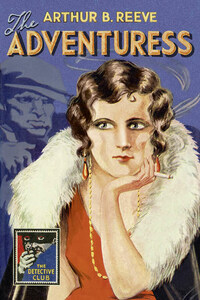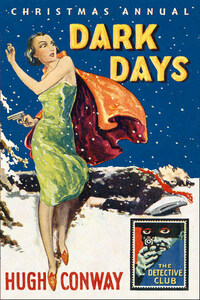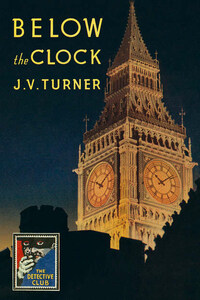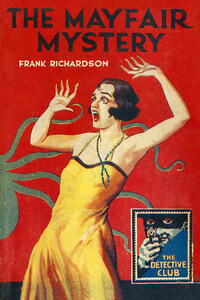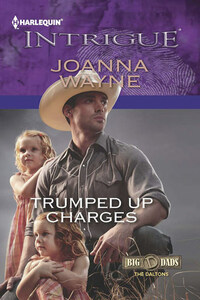‘THE DETECTIVE STORY CLUB is a clearing house for the best detective and mystery stories chosen for you by a select committee of experts. Only the most ingenious crime stories will be published under the THE DETECTIVE STORY CLUB imprint. A special distinguishing stamp appears on the wrapper and title page of every THE DETECTIVE STORY CLUB book—the Man with the Gun. Always look for the Man with the Gun when buying a Crime book.’
Wm. Collins Sons & Co. Ltd., 1929
Now the Man with the Gun is back in this series of COLLINS CRIME CLUB reprints, and with him the chance to experience the classic books that influenced the Golden Age of crime fiction.
Published by COLLINS CRIME CLUB
An imprint of HarperCollinsPublishers Ltd
1 London Bridge Street
London SE1 9GF
www.harpercollins.co.uk
First published in Great Britain by W. Collins Sons & Co. Ltd 1918
Published by The Detective Story Club Ltd 1930
Introduction © David Brawn 2017
Cover design © HarperCollinsPublishers Ltd 1930, 2017
A catalogue copy of this book is available from the British Library.
This novel is entirely a work of fiction. The names, characters and incidents portrayed in it are the work of the author’s imagination. Any resemblance to actual persons, living or dead, events or localities is entirely coincidental.
All rights reserved under International and Pan-American Copyright Conventions. By payment of the required fees, you have been granted the non-exclusive, non-transferable right to access and read the text of this e-book on screen. No part of this text may be reproduced, transmitted, down-loaded, decompiled, reverse engineered, or stored in or introduced into any information storage and retrieval system, in any form or by any means, whether electronic or mechanical, now known or hereinafter invented, without the express written permission of HarperCollins.
Source ISBN: 978000813656
Ebook Edition © March 2017 ISBN: 9780008137663
Version: 2017-01-30
‘The name’s Kennedy. Craig Kennedy.’
The twenty-first century crime reader might be forgiven for replying, ‘Who?’ But a hundred years ago, Craig Kennedy, ‘scientific detective’, needed no introduction. He was a household name on both sides of the Atlantic, acquiring the impressive tagline ‘The American Sherlock Holmes’ and conquering newspapers, magazines, books, comic strips, stage, films—silent and spoken—and early television, destined, or so it seemed then, for literary immortality.
Kennedy’s creator, Arthur Benjamin Reeve, was born in the New York town of Patchogue on 15 October 1880. A gifted academic and polymath, he graduated from Brooklyn’s exclusive Boys’ High School in 1899 and went to Princeton University, studying ‘about everything with an ’ology or an ’onomy at the end of it’, inspiring and even tutoring fellow students. Law School beckoned, and although fascinated by the subject of criminal law Reeve had no appetite to compete when he discovered that there were 16,000 lawyers in New York and dropped out to pursue his first love: writing. Various editorial posts led to freelance journalism and some short stories, his first in Argosy magazine, before his big break came with Cosmopolitan in 1910.
Cosmopolitan, the magazine that had premiered H.G. Wells’ The War of the Worlds in the US in 1897, was at that time a monthly literary publication with nearly a million readers. Reeve’s story, ‘The Case of Helen Bond’, introduced Craig Kennedy, ‘the Professor of Criminal Science’, and was followed the next month by ‘The Silent Bullet’ (January 1911), which became the titular chapter of the first hardback when the first dozen stories were collected and published by Dodd, Mead in 1912. The adventures of Craig Kennedy were a constant monthly fixture in Cosmopolitan for two years before becoming less regular items, and more than 80 were published altogether by 1918.
The innovation of Reeve’s stories was that Kennedy, a chemistry professor based in New York, would apply scientific methods to the detection of crime. The fictional narrator was Walter Jameson, a newspaper reporter whose bemused interpretation of Kennedy’s wild experiments gave the reader’s eye view of events, recalling Sherlock Holmes’ Dr Watson. The stories contained more than a little science fiction, from developments in chemistry and medicine to speculative communication devices and weaponry, but these were not tales of fantasy: the scientific theories were perceptive and up to date. Reeve prided himself on keeping abreast of the science journals and plundered them for story ideas, with scientists like Tesla and Edison complimenting him on his technological intelligence, and readers thrilled at the possibilities that were envisioned in the Craig Kennedy tales. As John Locke observes in his invaluable biography,
